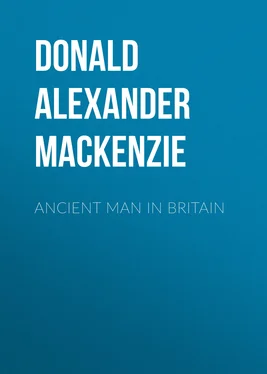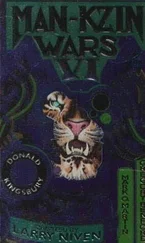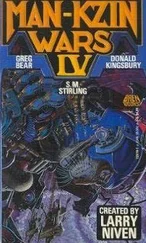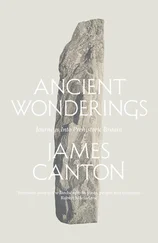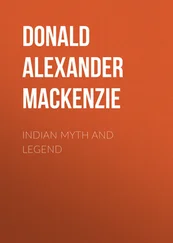Donald Alexander Mackenzie - Ancient Man in Britain
Здесь есть возможность читать онлайн «Donald Alexander Mackenzie - Ancient Man in Britain» — ознакомительный отрывок электронной книги совершенно бесплатно, а после прочтения отрывка купить полную версию. В некоторых случаях можно слушать аудио, скачать через торрент в формате fb2 и присутствует краткое содержание. Жанр: foreign_prose, История, Биология, foreign_edu, foreign_antique, на английском языке. Описание произведения, (предисловие) а так же отзывы посетителей доступны на портале библиотеки ЛибКат.
- Название:Ancient Man in Britain
- Автор:
- Жанр:
- Год:неизвестен
- ISBN:нет данных
- Рейтинг книги:3 / 5. Голосов: 1
-
Избранное:Добавить в избранное
- Отзывы:
-
Ваша оценка:
- 60
- 1
- 2
- 3
- 4
- 5
Ancient Man in Britain: краткое содержание, описание и аннотация
Предлагаем к чтению аннотацию, описание, краткое содержание или предисловие (зависит от того, что написал сам автор книги «Ancient Man in Britain»). Если вы не нашли необходимую информацию о книге — напишите в комментариях, мы постараемся отыскать её.
Ancient Man in Britain — читать онлайн ознакомительный отрывок
Ниже представлен текст книги, разбитый по страницам. Система сохранения места последней прочитанной страницы, позволяет с удобством читать онлайн бесплатно книгу «Ancient Man in Britain», без необходимости каждый раз заново искать на чём Вы остановились. Поставьте закладку, и сможете в любой момент перейти на страницу, на которой закончили чтение.
Интервал:
Закладка:
Several chapters are devoted to the religious beliefs and customs of our ancestors, and it is shown that there is available for study in this connection a mass of evidence which the archæological agnostics are too prone to ignore. The problem of the megalithic monuments must evidently be reconsidered in the light of the fuller anthropological data now available. Indeed, it would appear that a firmer basis than that afforded by "crude evolutionary ideas" must be found for British archæology as a whole. The evidence of surviving beliefs and customs, of Celtic philology and literature, of early Christian writings, and of recent discoveries in Spain, Mesopotamia, and Egypt, cannot, to say the least of it, be wholly ignored.
In dealing with the race problem, the writer has sifted the available data which throw light on its connection with the history of British culture, and has written as he has written in the hope that the growth of fuller knowledge on the subject will be accompanied by the growth of a deeper sympathy and a deeper sense of kinship than has hitherto prevailed in these islands of ours, which were colonized from time to time by groups of enterprising pioneers, who have left an enduring impress on the national character. The time is past for beginning a history of Britain with the Roman invasion, and for the too-oft-repeated assertion that before the Romans reached Britain our ancestors were isolated and half civilized.
DONALD A. MACKENZIE.CHAPTER I
Britons of the Stone Age
Caricatures of Early Britons—Enterprising Pioneers—Diseases and Folk-cures—Ancient Surgical Operations—Expert Artisans—Organized Communities—Introduction of Agriculture—Houses and Cooking Utensils—Spinning and Weaving—Different Habits of Life—The Seafarers.
The Early Britons of the Stone Age have suffered much at the hands of modern artists, and especially the humorous artists. They are invariably depicted as rude and irresponsible savages, with semi-negroid features, who had perforce to endure our rigorous and uncertain climate clad in loosely fitting skin garments, and to go about, even in the depth of winter, barefooted and bareheaded, their long tangled locks floating in the wind.
As a rule, the artists are found to have confused ideas regarding the geological periods. Some place the white savages in the age when the wonderful megalithic monuments were erected and civilization was well advanced, while others consign them to the far-distant Cretaceous Age in association with the monstrous reptiles that browsed on tropical vegetation, being unaware, apparently, that the reptiles in question ceased to exist before the appearance of the earliest mammals. Not unfrequently the geological ages and the early stages of human culture are hopelessly mixed up, and monsters that had been extinct for several million years are shown crawling across circles that were erected by men possessed of considerable engineering skill.
It is extremely doubtful if our remote ancestors of the Stone Age were as savage or as backward as is generally supposed. They were, to begin with, the colonists who made Britain a land fit for a strenuous people to live in. We cannot deny them either courage or enterprise, nor are we justified in assuming that they were devoid of the knowledge and experience required to enable them to face the problems of existence in their new environment. They came from somewhere, and brought something with them; their modes of life did not have origin in our native land.
Although the early people lived an open-air life, it is doubtful if they were more physically fit than are the Britons of the twentieth century. They were certainly not immune from the ravages of disease. In their graves are found skeletons of babies, youths, and maidens, as well as those of elderly men and women; some spines reveal unmistakable evidence of the effects of rheumatism, and worn-down teeth are not uncommon. It is possible that the diseases associated with marshy localities and damp and cold weather were fairly prevalent, and that there were occasional pestilences with heavy death-rates. Epidemics of influenza and measles may have cleared some areas for periods of their inhabitants, the survivors taking flight, as did many Britons of the fifth century of our own era, when the country was swept by what is referred to in a Welsh book 1 1 Book of Llan Daf.
as "the yellow plague", because "it made yellow and bloodless all whom it attacked". At the same time recognition must be given to the fact that the early people were not wholly ignorant of medical science. There is evidence that some quite effective "folk cures" are of great antiquity—that the "medicine-men" and sorcerers of Ancient Britain had discovered how to treat certain diseases by prescribing decoctions in which herbs and berries utilized in modern medical science were important ingredients. More direct evidence is available regarding surgical knowledge and skill. On the Continent and in England have been found skulls on which the operation known as trepanning—the removing of a circular piece of skull so as to relieve the brain from pressure or irritation—was successfully performed, as is shown by the fact that severed bones had healed during life. The accomplished primitive surgeons had used flint instruments, which were less liable than those of metal to carry infection into a wound. One cannot help expressing astonishment that such an operation should have been possible—that an ancient man who had sustained a skull injury in a battle, or by accident, should have been again restored to sanity and health. Sprains and ordinary fractures were doubtless treated with like skill and success. In some of the incantations and charms collected by folk-lorists are lines which suggest that the early medicine-men were more than mere magicians. One, for instance, dealing with the treatment of a fracture, states:
"He put marrow to marrow; he put pith to pith; he put bone to bone; he put membrane to membrane; he put tendon to tendon; he put blood to blood; he put tallow to tallow; he put flesh to flesh; he put fat to fat; he put skin to skin; he put hair to hair; he put warm to warm; he put cool to cool."
"This," comments a medical man, "is quite a wonderful statement of the aim of modern surgical 'co-aptation', and we can hardly believe such an exact form of words imaginable without a very clear comprehension of the natural necessity of correct and precise setting." 2 2 Dr. Hugh Cameron Gillies in Home Life of the Highlanders , Glasgow, 1911, pp. 85 et seq.
The discovery that Stone Age man was capable of becoming a skilled surgeon is sufficient in itself to make us revise our superficial notions regarding him. A new interest is certainly imparted to our examination of his flint instruments. Apparently these served him in good stead, and it must be acknowledged that, after all, a stone tool may, for some purposes, be quite as adequate as one of metal. It certainly does not follow that the man who uses a sharper instrument than did the early Briton is necessarily endowed with a sharper intellect, or that his ability as an individual artisan is greater. The Stone Age man displayed wonderful skill in chipping flint—a most difficult operation—and he shaped and polished stone axes with so marked a degree of mathematical precision that, when laid on one side, they can be spun round on a centre of gravity. His saws were small, but are still found to be quite serviceable for the purposes they were constructed for, such as the cutting of arrow shafts and bows, and the teeth are so minute and regular that it is necessary for us to use a magnifying glass in order to appreciate the workmanship. Some flint artifacts are comparable with the products of modern opticians. The flint workers must have had wonderfully keen and accurate eyesight to have produced, for instance, little "saws" with twenty-seven teeth to the inch, found even in the north of Scotland. In Ancient Egypt these "saws" were used as sickles.
Читать дальшеИнтервал:
Закладка:
Похожие книги на «Ancient Man in Britain»
Представляем Вашему вниманию похожие книги на «Ancient Man in Britain» списком для выбора. Мы отобрали схожую по названию и смыслу литературу в надежде предоставить читателям больше вариантов отыскать новые, интересные, ещё непрочитанные произведения.
Обсуждение, отзывы о книге «Ancient Man in Britain» и просто собственные мнения читателей. Оставьте ваши комментарии, напишите, что Вы думаете о произведении, его смысле или главных героях. Укажите что конкретно понравилось, а что нет, и почему Вы так считаете.
